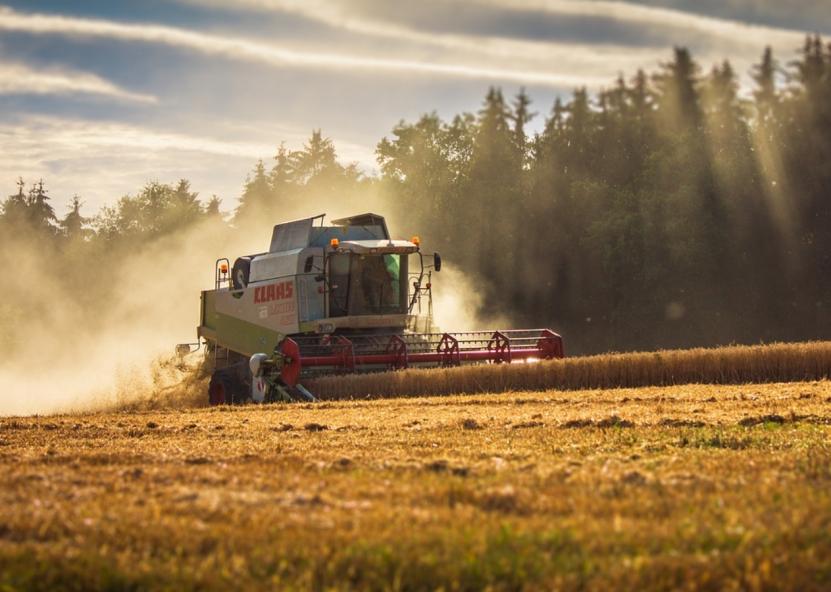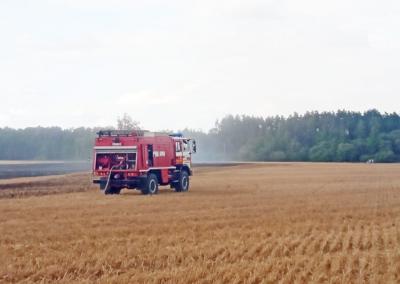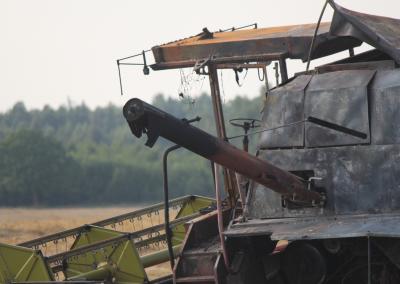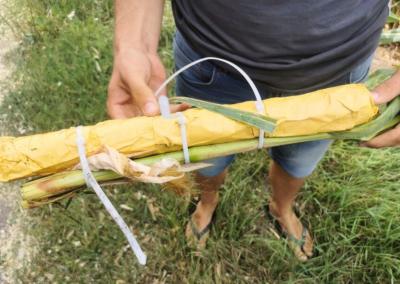Why do combine harvesters catch fire during harvest?
With harvesting in Lithuania in full swing, harvesters are starting to catch fire more and more. Even a small spark can turn into a large fire in seconds. When a combine harvester catches fire, it often takes over the crop fields too. According to the Fire and Rescue Department, 24 agricultural machinery fires occurred in the country in July this year, including 18 harvester fires. Last year, during the same period, there were 6 fires involving agricultural machinery and 4 combine harvesters.
Why are combine harvesters on fire? According to Gints Dirdos, Chief Specialist of the Marijampolė Fire Rescue Service, the most common causes of such fires are faults in the electrical wiring or fuel system, technical faults in rotating parts, collapsed bearings, etc.
„It is not uncommon for a burst high-pressure lubricant hose or coupling to spill lubricant onto hot surfaces, belt drives, pulleys and, when mixed with dust, to cause a flash fire. A fire can also be caused by straw or stubble catching fire, even a simple spark in a combine harvester's ceder or straw chopper, which can cause a stone chip," says Mr Dirda.
To prevent expensive harvesting machinery from turning into a fire torch, it is essential to take care of the initial fire-fighting measures. „During prevention campaigns or when talking to farmers, I have always stressed that even though it is stipulated that each combine harvester must have at least 2 fire extinguishers and a flame retardant cloth, it is not enough to locally control a fire in or around it. If a combine harvester catches fire, 6 extinguishers with 6-9 kg of extinguishing material are needed, says Mr Dirda.
Farmers are also advised to buy at least one carbon dioxide extinguisher to extinguish fires caused by electrical wiring. Having fire extinguishers is not enough, he says, as is being able to use them and extinguish them correctly. These skills should be acquired through fire extinguisher maintenance practical training, using more than one fire extinguisher so that the workers working during the harvest season learn how to extinguish such fires.He said that the high losses caused by such fires are forcing a change in attitude and focus on fire safety. According to Mr Dirdos, during the harvest season, around 80% of farmers, especially larger farm owners and agricultural companies, bring extra water tanks to the fields and are prepared to plough up the fire if necessary.According to Dirdos, harvesters catch fire for various reasons: „There have been cases of a new harvester catching fire during threshing when it was under high tension wires. It was very hot and there was a lot of dust. The high temperature caused the electric wires to go down about 1 metre and the radio antenna on the harvester. Due to the electromagnetic field generated and the conditions suitable for the fire to start and spread, the electrical equipment and computers in the cab of the combine exploded and a fire broke out in the cab of the combine. It was only by a stroke of luck that the combine harvester managed to jump out of the cab. Although he broke his leg during the jump, he was not injured or burnt by the fire.According to Mr Dirda, this year's harvest could also have been a serious accident – the harvester hit a power pole while threshing, which broke and caused the electric wires to fall on the cedar, igniting the stubble and the front part of the harvester. The electric wires were live. Fortunately, the fire did not spread and there were no injuries.












































































































